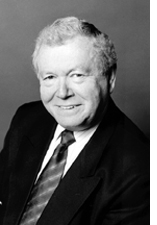By Rabbi Dow Marmur

JERUSALEM — Israel has something of an anti-European complex. That’s the impression readers of The Globe and Mail, Canada’s “national newspaper,” are likely to get from a report by its Jerusalem-based correspondent Patrick Martin. Writing about Israeli reactions to the incident that cost a colonel his job because, as Martin put it, “he slugged a pro-Palestinian Danish protester with his rifle,” the author saw in the Israeli reactions a lot of anti-European sentiments.
It’s an apt observation. Ashkenazi Jews, though no longer numerically in the majority still dominate Israeli public life. As either they or their forbears came from Europe, they suffer from unrequited love and are deeply hurt when they feel that Europe rebuffs them. The reaction to the unfortunate poem by Gunter Grass is a case in point.
Though the current “presenting problem” about the colonel and the young Danish activist reflects the tendency of the European political left to be critical of, even hostile to, Israel, the real issue is the bitter memory of the way Europe rejected its Jews in the 20th century after it emancipated them in the 19th. Thus, for example, all modernist movements in Judaism with roots in the 19th century speak with a heavy German accent: Reform, Conservative and modern Orthodox Judaism no less than Zionism. And many, often assimilated, Jews were prominent in shaping modern Europe.
Then came Hitler and shattered it all while the rest of Europe sort-of-acquiesced. Though there were many righteous gentiles who defended and rescued Jews, there were few righteous governments that stood up for the Jewish minorities in their midst.
The Zionist response, inter alia, was to re-create Europe in the Land of Israel. Jerusalem may be the historic and ideological capital of the state, but the de facto capital is Tel Aviv. Be it the Bauhaus architecture and the cafes, the opera and the many theatres in the city, and very much else – they’re as European as they come. That’s one reason why Israelis love Tel Aviv and tourists much less so: foreigners don’t want to come to the Middle East to be in Europe. Israelis do.
The fact that so many Europeans, ordinary folk no less than officials, are today critical of Israel to a much higher degree than say Americans and Canadians is deeply offensive to Israelis. They understandably connect the present hostility to recent history and find it easy to identify the anti-Israel sentiments as raw anti-Semitism.
That’s one reason why not only government officials but ordinary Israelis are on the lookout for what they take to be anti-Semitic incidents in Europe as contemporary evidence that nothing has changed. Thus the recent murder of members of a Jewish family in Toulouse became something of a metaphor for the condition of all Jews and not only in France. Similarly, the anti-Jewish antics of the mayor of Malmo in Sweden are receiving wide publicity here.
Israeli commentators and bloggers regularly urge Jews to leave Europe and come to live in Israel. Some even imply that you can have all the good things of European culture in the Jewish state without the humiliation and the danger to life and limb there.
When local leaders try to assure Israelis that things aren’t as bad as they’re being depicted, they’re hardly ever believed. Instead, it’s assumed that their reactions are manifestations of repression and denial. Both sides may be right – from their perspective.
*
Rabbi Marmur is spiritual leader emeritus of Holy Blossom Temple in Toronto. Now dividing his time between Canada and Israel, he may be contacted at dow.marmur@sdjewishworld.com